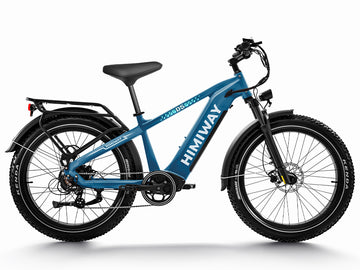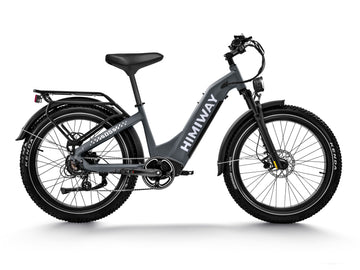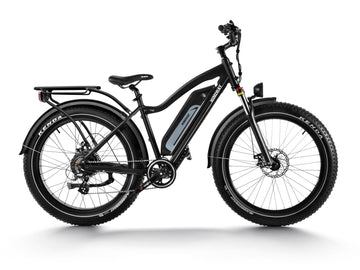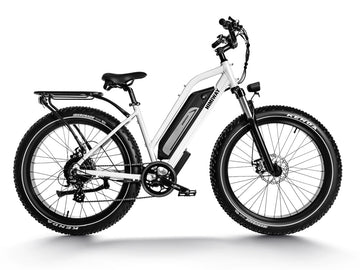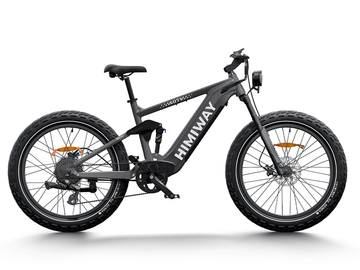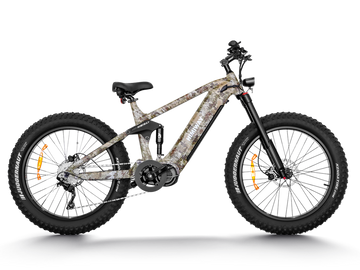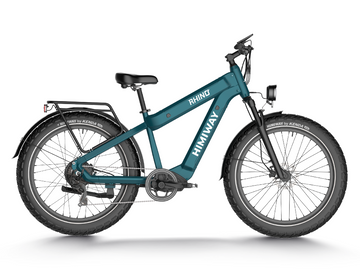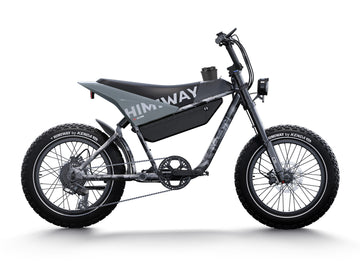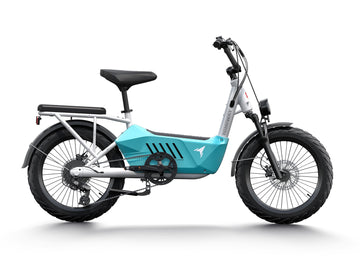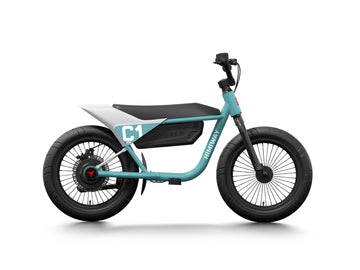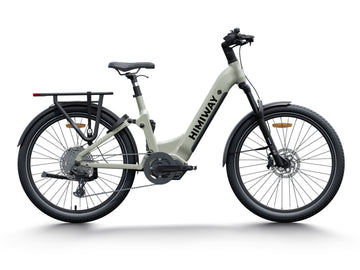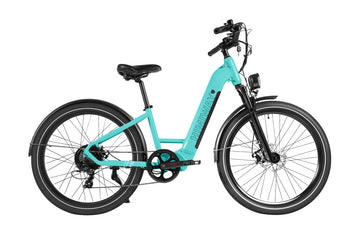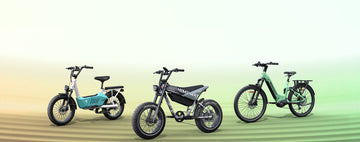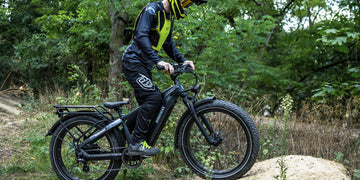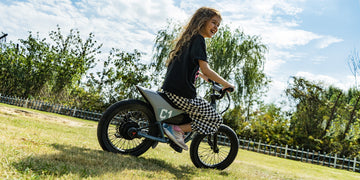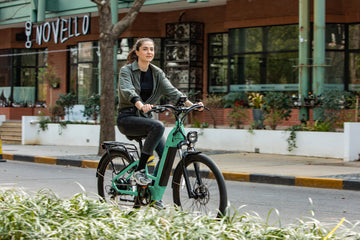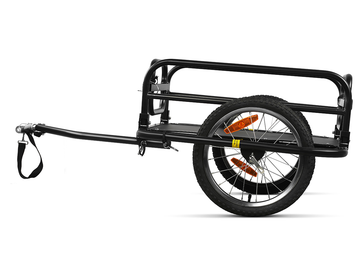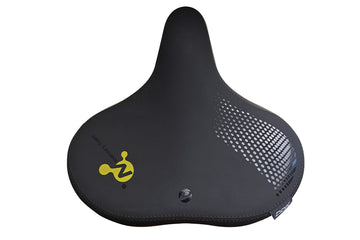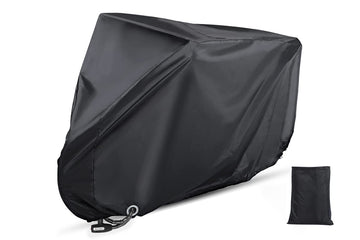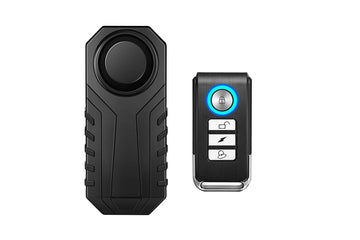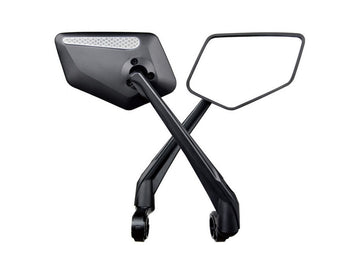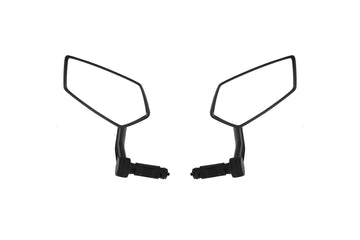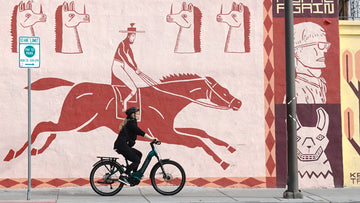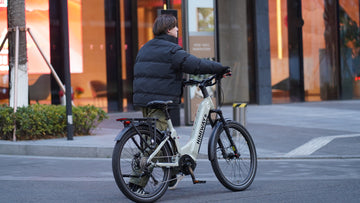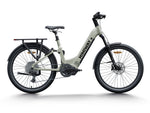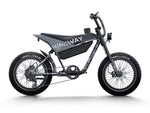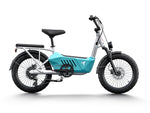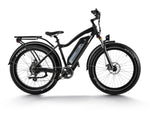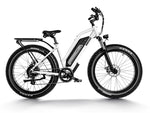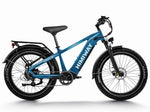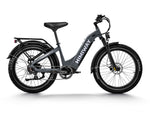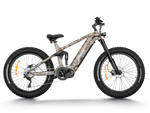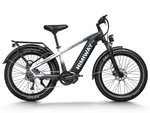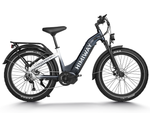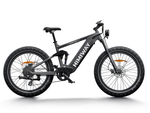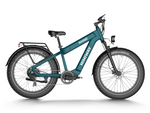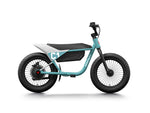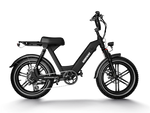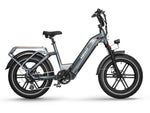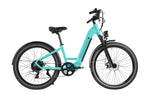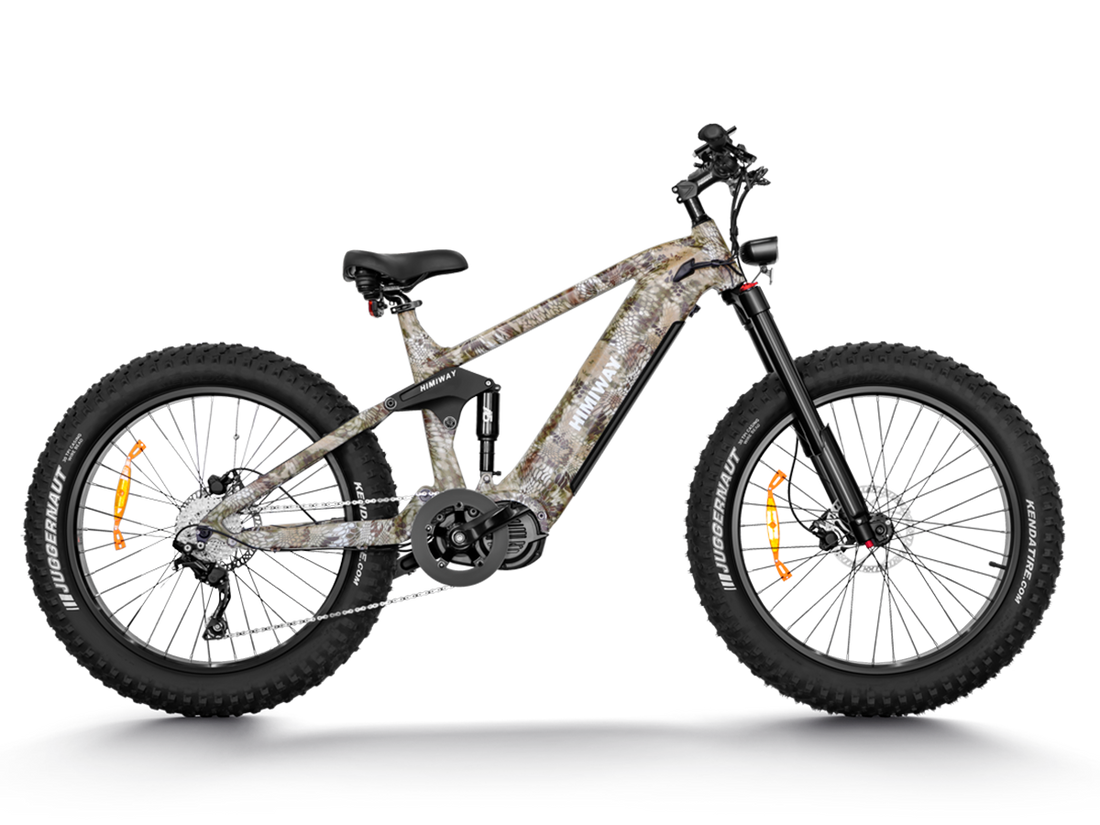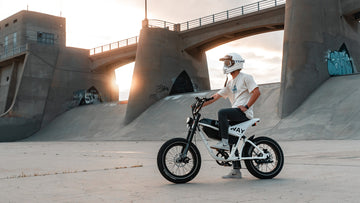Below we detail how to pump an electric bike tire in 4 easy steps. These instructions will give you a basic understanding of how to identify your valve type, what pressure to use, the best electric bicycle air pump for your needs, and how to pump your tire. Your bike will be ready in no time after following these steps.
Step 1. Determine the Valve Type
The first step to inflating bike tires is identifying the type of valve your tires have. The valve is the small metal cylinder sticking out between your wheel spokes. You will find one valve on each tire. It is the piece you will use to increase or decrease the air pressure in your tires.
There are two main types of valves depending on the bike: a Shrader valve or a Presta valve. Shrader valves are a common type of valve often seen on car tires. Some mountain bikes or children's bikes will use a Shrader valve. The second type of valve is the Presta valve, which is often found on road bikes or hybrid bike models and can be identified by the small screw that you will be able to turn on the tip of the valve. Both types of valves may come with small plastic caps to prevent dirt and damage to the valve.
It is essential to note the type of valve your bike tires have to ensure you have the correct type of valve connector on your pump. Electric bike pumps usually support both types of valves, such as the Himiway E-bike Pump, which has a dual valve head with a thumb lock. If your pump only supports one valve type or the other, you may need to purchase an adapter to use it with your specific bike. Below are photo examples of the valve types:
1. Presta valve type

2. Schrader valve type

Full Suspension Electric Bike Cobra Pro/D7 Pro
-
1000
W
Mid-drive Motor
-
28
Mph
Top Speed
-
960
Wh
Samsung/LG Battery
-
80
Miles
Per Charge (maximum)
Step 2. Determine the Pressure You Need
Next, you will need to figure out the optimal range of air pressure for your tires. This information is often written or stamped on the side of your tire. It may be referred to as PSI (Pounds per Square Inch), a technical unit of measurement. Don't worry about the fancy term; just look for the PSI number on the tire or in your bike manual. Generally, the PSI of most mountain bike tires is between 25 to 35 PSI, while the air pressure of road bikes may be higher, around 85 to 110 PSI.
It is important to note that you should NEVER use a car tire air machine to fill your bike tires up with air as it may blow your tire out with so much power, such as the machines found at a mechanic's shop. Always use a traditional hand pump or an electric bicycle air pump for filling your bike tires.
Your air pump may come with a PSI gauge or readout to give you an estimate of the tire pressure as you fill your tire. If not, you can purchase an additional pressure gauge so that the tire pressure can be accurately measured. It is crucial to inflate your tires to the correct pressure to avoid blowing out your tire while riding or going over a bump in the road.
Step 3. Choose the Right Pump
As we discussed in Step 2, different air pumps will have various features. Some standard electric bicycle tire pumps are Floor Pumps, Mini Pumps, Bike-mount pumps, or CO2 inflators, just to name a few. Choosing the best pump is essential because you want to trust your equipment and begin riding as soon as possible.
Floor pumps are generally the fastest type of tire pump and therefore suitable to use with a fat tire e-bike that needs a lot of air. They are easy to use and an efficient use of your time. Floor pumps might be too big to carry with you on a long bike trip. Instead, consider a portable air pump or bike frame-mounted pump, which might take a little longer if the tire is very deflated. Finally, there are CO2 pumps that are fast but will be costlier if used often.
Step 4. Pump Your Electric Bike Tire
Once you know your valve type, have found your proper PSI, and have your pump ready, you can pump your electric bike tire with air and get ready for your ride. Unscrew the dust cover cap (if needed) and connect the air pump by pressing it straight down over the valve. Remember, if you have a Presta valve, you will need to unscrew the small knob on the tip of the metal to open the valve.
While you are pumping air, monitor the pressure and check the gauge if you have one on your pump. You may want to start and stop a few times as you add air slowly, ensuring you do not go over the maximum PSI range. Small and medium-sized manual air pumps may take about 5 to 10 minutes to fill your tire. If you are just topping off your tire before a ride, it may only take 1 minute.
If you don't have a pressure gauge, you can estimate the tire pressure by using your fingers and pushing into the rubber tire itself. For road bikes, when you press your fingers into the rubber tire, you should not be able to press into the tire very much at all. For mountain bikes, you should be able to manually push in about one centimeter. If your tires have a Presta valve, tighten the valve back down once you are done adding air. Re-attach any dust caps if your bike has them and you are done!

Remember, check your valve type, find the acceptable pressure range, choose the best electric bike pump for your situation, and inflate your tires properly. Now you know how to pump an electric bike tire successfully, and soon you will be able to do it quickly and easily. Be sure to check out some of our other tire-related guides such as How to Avoid Flat Tires and 7 Things You Should Have in Your E-Bike Repair Kit.
